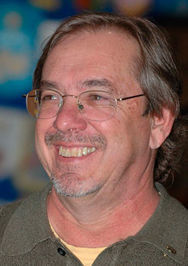Some people keep talking about the death of newspapers, and it is true that hundreds of newspapers nearby and far away have ceased publication in recent years. So far this year in California alone, 14 newspapers have folded and gone out of business.
Just in the last few years in the Bay Area, several hundred newspaper journalists have lost their jobs. Unlimited access to the internet and the rise of social media platforms like Facebook are blamed for the demise of print journalism most of the time. People are too busy playing with their smart phones and they think all news should be free.
All this is a poor set of particulars for celebrating this week as National Newspaper Week (Oct. 7-13), but here we are. This year’s theme is “Journalism Matters, Now More Than Ever.” If that’s true, why do thousands of journalists and newspaper people keep losing their jobs?
Maybe the world doesn’t need journalists anymore, just like Pony Express riders and telegraph operators. Maybe these days the news happens all by itself.
Go ahead and try to imagine a world without professional journalists and their notepads, nosy questions, cameras and Twitter feeds.
A day without journalists is a day without a page full of sports scores or stock market prices. It’s a day where elected officials and governments get away with only telling the public what they want to be known.
Instead of a comprehensive newspaper story, all the public knows is what’s in an official press release or a Nextdoor post.
Lots of good deeds, charity causes and heroes would go without support or mention without a local journalist. Likewise, plenty of misdeeds, shady deals and falsehoods would go unreported.
In a world without journalists that are trained to check facts and be diligent witnesses, big debates and local votes would be won by the richest, loudest, most fearsome, most presumptuous or most powerful and almighty.
In that kind of world, the little guys, the poor, the unconnected, disenfranchised, voiceless, minority groups and (often) women would be without a valuable friend and defender.
Maybe a positive outcome would be people spending less time addicted to their smart phones, because Facebook and Twitter would be a lot less useful without news copied (for free) from journalists.
It might be safer to watch TV without FOX, CNN and all those loud news commentators. (Without real news, they wouldn’t have anything to comment about, right?)
Right about now we may be accused of having a vested interest in the future of professional journalism. But, we quickly add, so do you.
Being your own journalist might be a lot like being your own doctor, plumber or lawyer. We can all do some minor tasks, but are heart surgery, septic tank replacement or investigative journalism really do-it-yourself affairs?
None of us can gather all our own news. We can’t always be our own eyewitness and, if we’re honest, we know we can’t always rely on what our Facebook friends or others try to tell us.
A journalist is a professional, just like a doctor, lawyer, engineer or educator. They dedicate years in training, practice and peer review. Journalism isn’t as complex as brain surgery, international law, climate science or public school administration. But a journalist needs to be able to comprehend and explain each of those subjects — and a whole lot more.
Journalism that matters is made not so much by what professional journalists know, but by what they believe. Journalists believe they must be fair, ethical, transparent and trustworthy. They believe their only true allegiance is to the truth and the public’s right to know.
Journalism that matters solves large and small problems, improves everyone’s conversations and upgrades public decision making. It’s truly frightening that journalism that matters doesn’t matter to more people.








